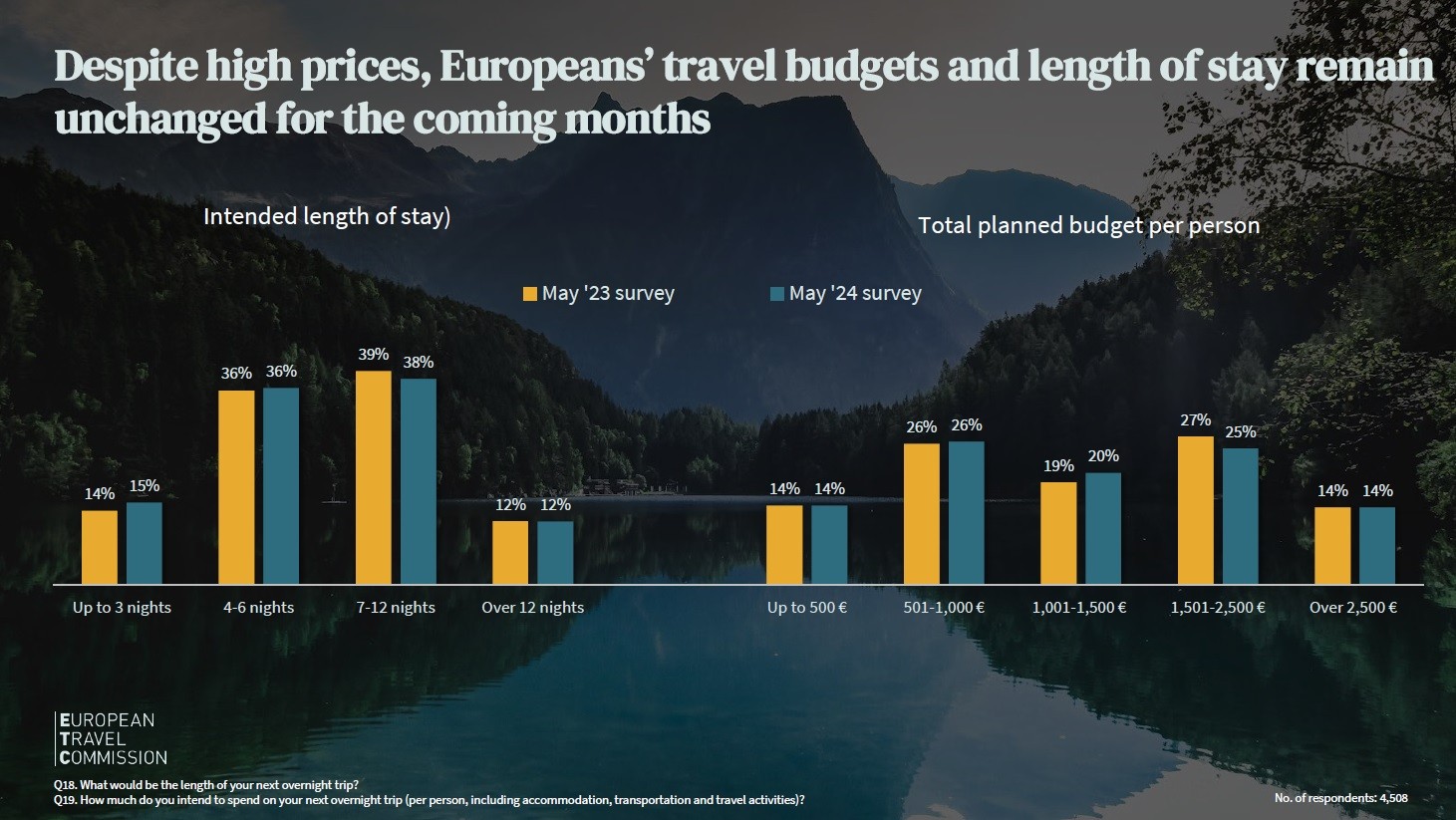Greece Ranks Fourth in European Travel Preferences Amid Climate Concerns
According to the recent report by the European Travel Commission (ETC), Greece remains a favored destination for European vacationers, claiming the fourth spot from now until November. The report sheds light on critical factors indicating potential challenges for tourism in southern Europe, especially with respect to extreme weather conditions and the looming climate crisis. As a result, many travelers are beginning to prefer northern countries.
A Closer Look at Greece’s Touring Status
Data from the MINDHAUS survey, titled “Monitoring Sentiment for Intra-European Travel – Wave 19,” reveals that Greece has seen an increase in its preference percentage, now standing at 5.9%, up from 5.4% last year. Meanwhile, Spain continues to lead the chart at 7.8%, followed closely by Italy with 7.6%, an increase from 7.0% last year. France, however, has slipped to third place, now at 7.0%, down from 7.2% in 2023.
Beach Lovers Favor Greece
In the category of vacationers seeking “sun and sea,” Spain takes the lead with 17%, closely followed by Greece at 11%. However, in other categories such as Culture & Heritage, Nature & Outdoors, and City Break, Greece is not listed among the top contenders.
Shifting Preferences in European Travel Destinations
When asked which European regions are preferred for summer travel, Southern Europe attracted 46% of respondents, a decline from 57% in 2022 and 47% in 2023. Conversely, Northern Europe holds a modest but increasing interest, accounting for 13% of preferences compared to 15% last year and 11% in 2022.
Importance of Weather and Safety
For European travelers, pleasant weather conditions and stable temperatures are critical deciding factors, influencing 21% of those surveyed. Safety remains a pivotal concern as well. Remarkably, travelers have expressed rising worries regarding economic factors, such as costs—at 20.8%—and economic conditions—16.1%. Next on the list of concerns is extreme weather events, reported at 10.1%, while the issue of overcrowding has raised concerns for 9.3% of respondents.
Growing Concerns Over Climate Change
The latest survey also dives deeper into climate-related worries that are influencing traveler decisions. An overwhelming 76% of respondents report adapting their travel habits due to climate change. Notably, 17% stated they would avoid destinations experiencing extreme temperatures—a figure that rises to 32% for those over 55, indicating heightened concern among older travelers regarding increasing heat levels.
Additional statistics indicate that 16% prefer destinations with stable weather, 15% keep an eye on weather forecasts, and 11% opt for activities that are not weather-dependent.

Southern Destinations Still Popular Despite Worries
Despite these challenges, southern Mediterranean destinations maintain their popularity among European tourists, especially among beachgoers. The latest report demonstrates a 6% increase in traveler interest for the period between June and November 2024 compared to last year, indicating that 75% of respondents are planning trips during this timeframe.
This upward trend is particularly pronounced among travelers from Spain, Italy, and the United Kingdom, with a noteworthy 80% of participants from these nations signaling their intent to travel during this season.
Fading Popularity of August Travel
Peak travel periods continue to captivate European vacationers. The survey findings reveal that 45% plan to travel in June and July, while 39% expect to journey in August and September. Only 12% indicate plans to travel in October and November, suggesting that the heatwaves and congestion that affected parts of Europe in the summer of 2023 have not significantly altered this year’s plans.
Air Travel Dominates European Destinations
Air travel has solidified its place as the most preferred mode of transport for journeys between European countries. Over 54% of Europeans now opt for flights, representing a 5% increase from last year. This trend is attributed to the fully restored air connectivity and the availability of low-cost flights to various European destinations.
Notably, travelers from the United Kingdom (73%), Spain (68%), and Italy (62%) are the most likely to choose air travel for their next vacation.
Car Travel is Still a Top Choice
Driving remains the second most popular travel option, with 28% of survey participants opting to travel by car, a slight decrease from 30% in 2023. This preference is especially strong among German (40%), Belgian (38%), and Austrian (35%) travelers. Train travel remains stable at around 10%.
The Role of Technology in Travel Planning
Almost all European travelers utilize digital resources for their travel plans, with online search engines and travel websites being the most popular tools. Despite various travel companies integrating artificial intelligence (AI) into their services, only 6% of vacationers reported using AI-based tools for planning.
Younger travelers are the primary users of AI technology, with 42% of those using AI for itinerary planning and 35% for travel-related purposes belonging to the 25-34 age range.
Conclusion: Navigating Travel Trends in a Changing Climate
As we look towards the future of European travel, Greece retains its charm as a favored destination despite significant challenges presented by climate change and fluctuating traveler preferences. While the potential for continued interest remains strong, it is clear that the tourism sector must adapt to evolving concerns about safety, weather, and sustainability. As travelers become more selective about their destinations, the onus will be on popular locales like Greece to innovate and maintain their allure, ensuring they meet the demands of a changing world.
As the dynamics of travel continue to unfold, stakeholders within the tourism industry must remain vigilant and responsive to emerging trends, ensuring that they not only attract visitors but also safeguard the unique environments that make destinations like Greece so appealing.






















